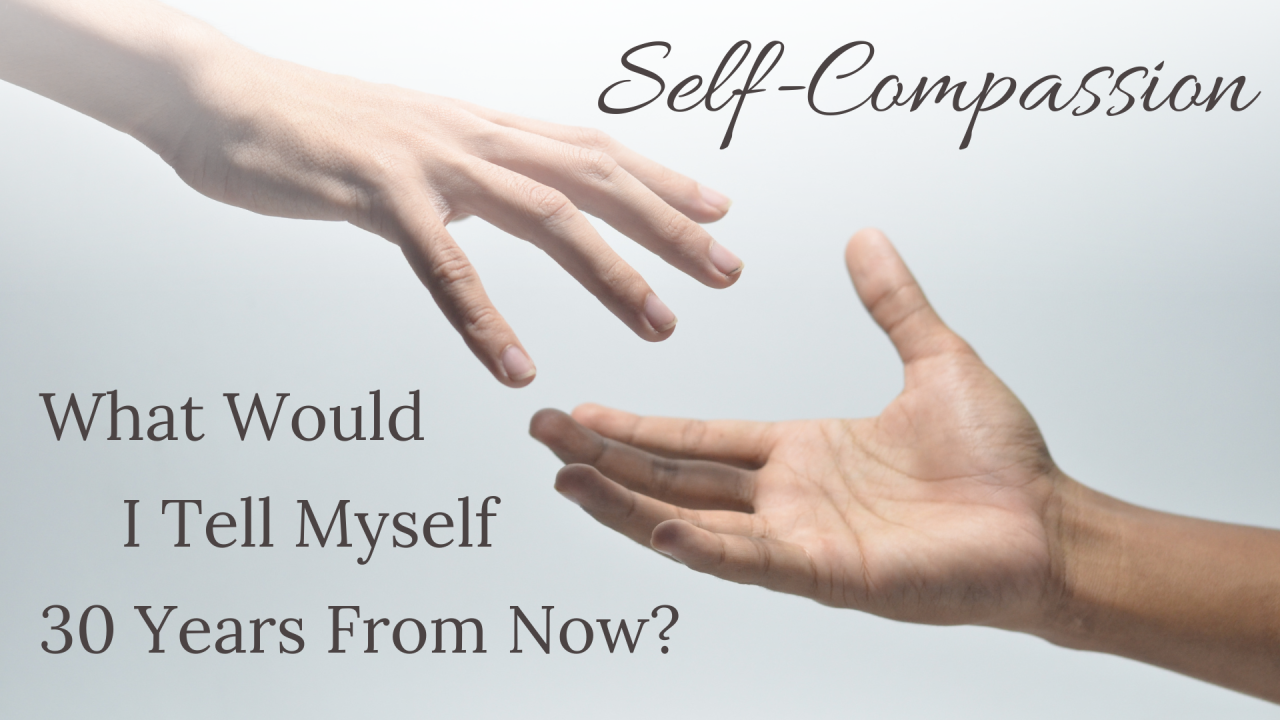Self-Compassion in Burnout Recovery: A Message to My Future Self
As a mental health counselor, I’m always looking for ways to manage the stress, pressure, and anxieties that come with both life transitions and those struggling with school and career burnout. One of the most powerful tools I’ve encountered comes from Compassion Focused Therapy (CFT): a simple but profound exercise where you imagine yourself 20 or 30 years in the future—older, wiser, and full of compassion. This CFT exercise can be particularly helpful during times of self-doubt or failure.
The idea is this: envision yourself as an older version of who you are now, someone who has gained wisdom, strength, and resilience from decades of experience. This future version of you has perspective, and they understand the struggles you’re facing today. They can look back with empathy, not judgment, and offer you the compassion and support you need right now.
What would they tell you in the moment? What would they say to ease your suffering?
Why This Exercise Matters
Imagining what your older, more compassionate self would say helps you shift perspective. It allows you to see that the fear, anxiety, or perfectionism you feel today is just one small piece of the bigger picture of your life. It reminds you that it’s okay to not have everything figured out right now.
This older version of yourself isn’t burdened by the same worries or fears. They’ve been through it and come out stronger. What would they tell you? Maybe they’d remind you that it’s okay to take a break, that mistakes are part of growth, and that you’re doing the best you can.
This exercise serves as a powerful reminder that you can give yourself the same level of compassion, support, and encouragement that you might seek from others. And by regularly practicing this self-compassion, you might find that the pressure eases, the stress lessens, and you start to view yourself with more empathy and understanding.
What Is Self-Compassion?
Self-compassion is the act of treating yourself with the same kindness, care, and understanding that you would offer to a close friend. Instead of harshly criticizing yourself for mistakes or imperfections, self-compassion allows you to respond with empathy and patience. It acknowledges that being human means being imperfect—and that’s okay.
During major life stressors—whether it’s starting a new job or looking for one, finishing a degree or starting over, or navigating personal challenges—it’s natural to feel overwhelmed by the weight of it all. But by imagining what you would tell yourself 30 years from now, you recognize that these moments, while challenging, are part of a much larger story, and that you have the strength to navigate them with kindness toward yourself.
So, next time you find yourself caught in a spiral of stress or self-criticism, pause. Take a moment to think: what would the future version of me say? Chances are, they would tell you that you’re doing just fine—and that you’re capable of handling whatever comes next. This is self-compassion.
If you are interested in learning more about my counseling practice, click the button below to get started on your mental health journey.
